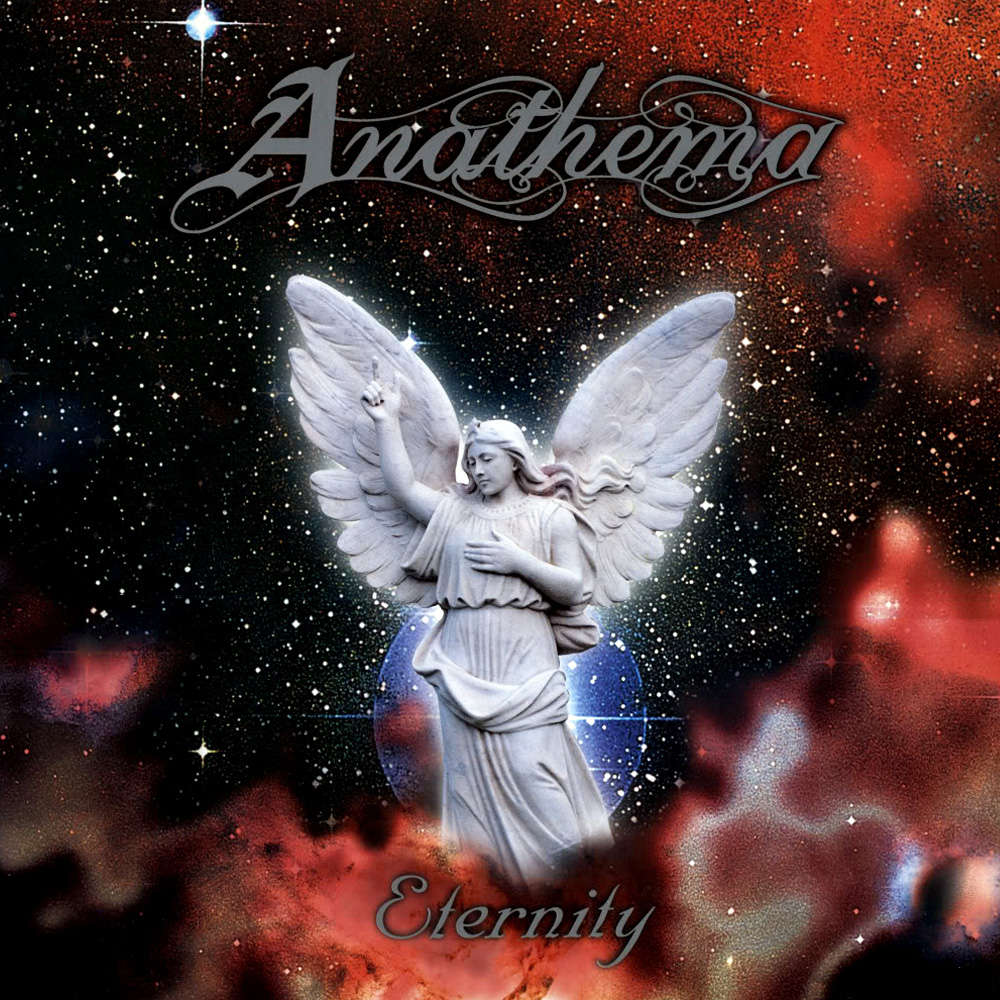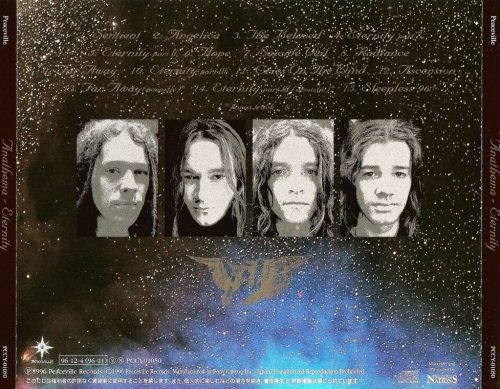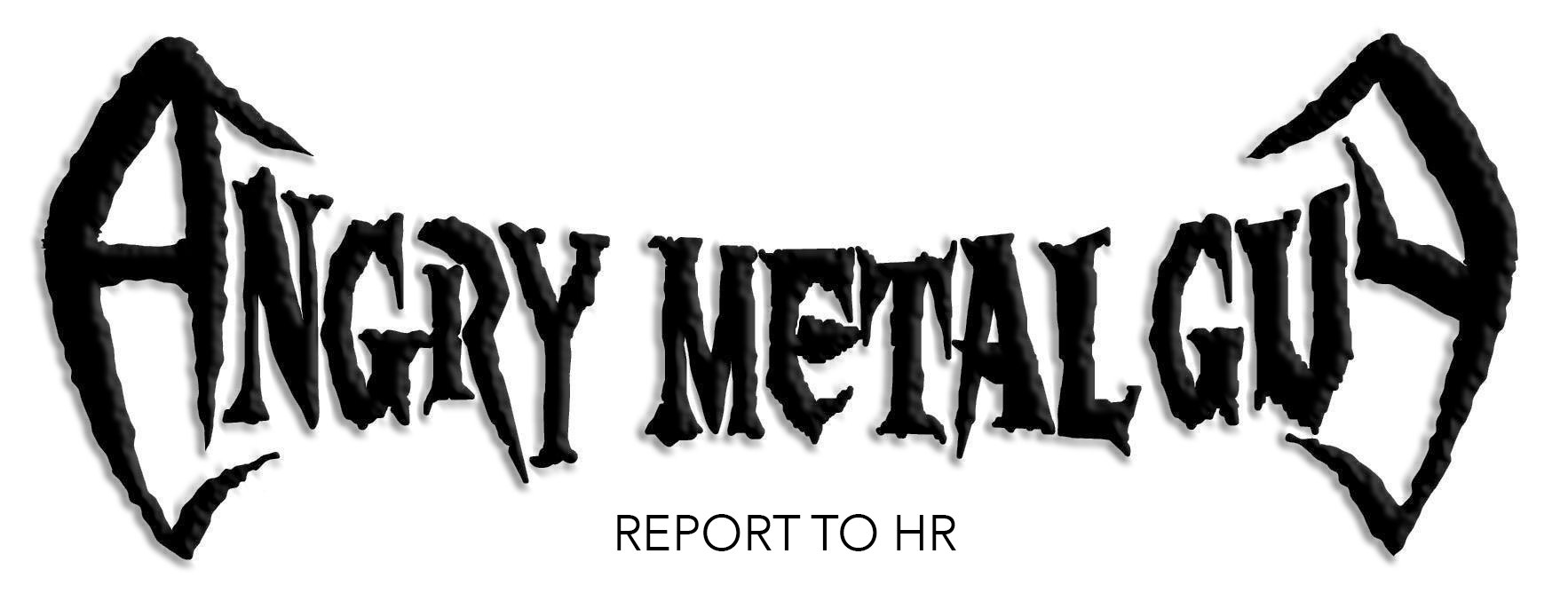 Of thousands of metal bands, there are few that have changed as drastically as Anathema. First blazing trails as a death-doom band and party to the so-called ‘Peaceville Three,’ they underwent a softening into what can be described as doom or goth rock. Their deathy innards stripped away, this mid-era is what some regard as their strongest output given they retained their darkness and evocative atmosphere but with subtler music. Since the turn of the millennium they’ve mellowed yet further into an unusual but compelling amalgamation of alternative rock, airy prog and dreamy pop. I’m here today to discuss my favorite Anathema album, one from the mid-period: Eternity. It seems this is an uncommon pick as more people point to Judgement but this was the beginning of everything they would go on to become. Its predecessor, The Silent Enigma, had already signified an intention to develop from death-doom but it’s here that these ideas were crystallized.
Of thousands of metal bands, there are few that have changed as drastically as Anathema. First blazing trails as a death-doom band and party to the so-called ‘Peaceville Three,’ they underwent a softening into what can be described as doom or goth rock. Their deathy innards stripped away, this mid-era is what some regard as their strongest output given they retained their darkness and evocative atmosphere but with subtler music. Since the turn of the millennium they’ve mellowed yet further into an unusual but compelling amalgamation of alternative rock, airy prog and dreamy pop. I’m here today to discuss my favorite Anathema album, one from the mid-period: Eternity. It seems this is an uncommon pick as more people point to Judgement but this was the beginning of everything they would go on to become. Its predecessor, The Silent Enigma, had already signified an intention to develop from death-doom but it’s here that these ideas were crystallized.
So Eternity can broadly be described as doom rock. It’s often morose and slow but is way subtler than doom metal would usually allow for, utilizing delicate tones, lots of acoustic guitar with prominent keyboards to flesh out detailed soundscapes. The metal hadn’t quite been purged but harsh vocals are reserved for but one occasion – and even then it’s buried in a dense climax, more of a token gesture than anything else. However, there’s a heaviness to a few of their constructions which while substantially distant from their roots, feel quite similar. The duality of density and delicacy is something which has gone on to characterize Anathema, even in their arguably excessively sensitive and sentimental current form. “Radiance” is also a tip of the hat to their older sound, developing from quiet, still chords to thicker distortion and heavy doom most similar to Serenades.
But through the majority, it’s the material which was then new which excites me most. The acoustic interludes, passages and harmonies are strongly evocative without the sappiness of later material – evoking despondency, distance and aching beauty. Eternity is assuredly a fitting title. Indeed, “Far Away” has a very proggy opening with a jamming guitar over a groovier bass-line. Prog went on to be an important tool in their repertoire, with Floydian landscapes on Weather Systems and Distant Satellites. Audio samples from other media are used on “Eternity Part II” and “Hope,” as is now the standard on a track or two, contributing to the intense atmosphere. This orientation around atmosphere is now also a central focus for the band and it’s here that Eternity sees its greatest victory. You can appreciate and enjoy music at a distance but it’s when it makes you feel something that you connect with it. The cosmic synths with which “Sentient” opens gives me a shudder of nostalgia, before the waves of longing and remote hope are induced. I love this emotional reaction which so few can achieve.

It certainly helps that Eternity is thoroughly engrossing throughout: it flows well. Spacey synths and cleaner guitar tones prevail during the record’s first third, ensuring there is acclimatization to the new sounds introduced. This is probably my favorite part of the record as it is so atmospheric. But upon reaching “Hope” there is change. It’s a Roy Harper cover which retains the record’s overall feel but is understandably slightly different emotionally. Its pace and relative positivity is then juxtaposed by “Suicide Veil,” with its appropriately low and dark approach. “Radiance” is the throwback and “Far Away” the prog track, both of which vary the album again. “Eternity Part III” then feels like a proper conclusion, with a return to earlier dark and seductive keyboards before ramping up into the most intense passage throughout. It’s unrelenting and immediate unlike much of the album and thus offers a natural climax. One of my few criticisms is that there are two further tracks after this – neither is bad but they’re extraneous and disturb the effective rhythm otherwise maintained.
A further reason why I like this more than Judgement is the production. The latter was starting to use a cleaner aesthetic, closer to typical rock music which suited the sound they would adopt. But Eternity still had a certain roughness left over from their metal days. The tones and feel more naturally suit the heavier passages, leaving the softer acoustic guitars and keyboards lacking precision and purity. This contributes to the darker, more alluring ambiance.
Eternity marks a transition period for Anathema but there were no growing pains – it’s a stunning album and one which I’ll never quite shake, even if I haven’t heard it for a number of months. It’s haunting but ultimately uplifting and its these echoes I hear when I pass the band’s name.

















